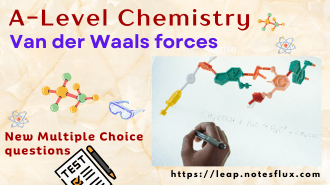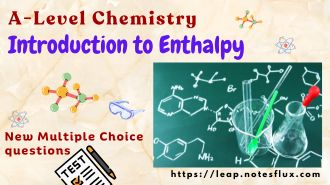NotesFlux
Practice GCSE and English Grammar online with our practice tests
A-Level Chemistry Van der Waals forces
Subject: Chemistry
Level: Beginner
466 views
5 likes

Instructions:
Please read the questions given below carefully, and answer them by selecting the most appropriate choices.
Note: Some of the questions may have more than one correct choices.
Try these tests:
Improve your revision with our online practice tests


